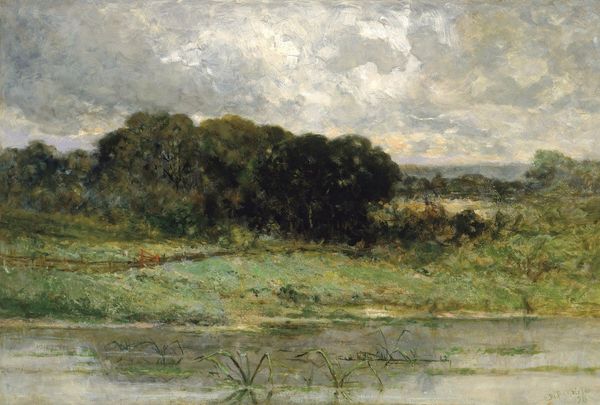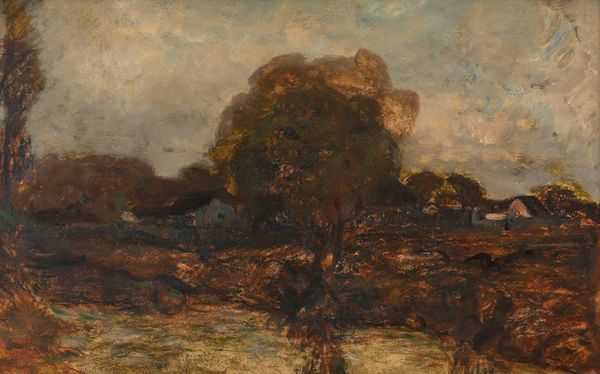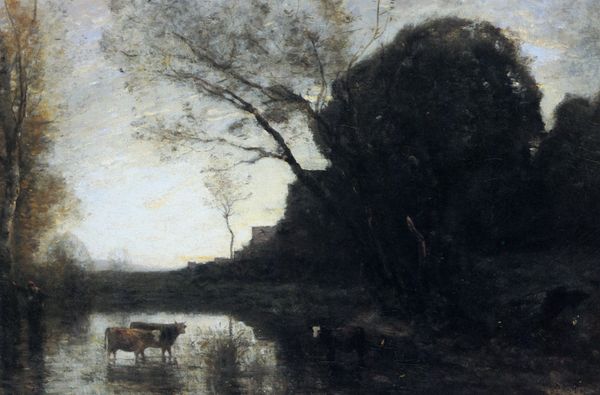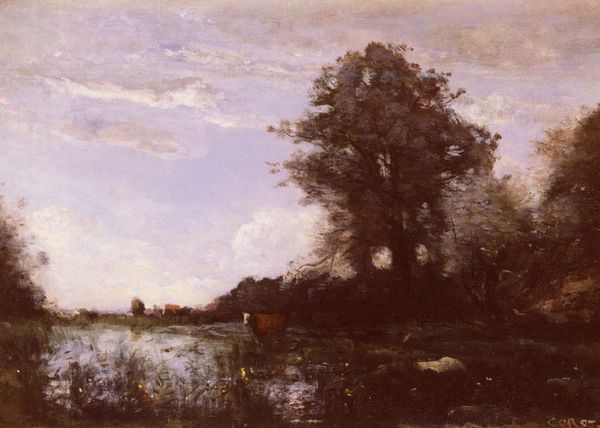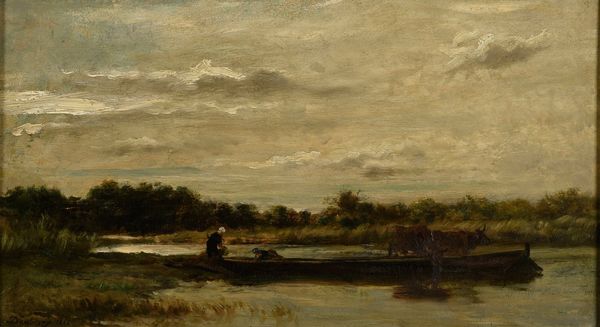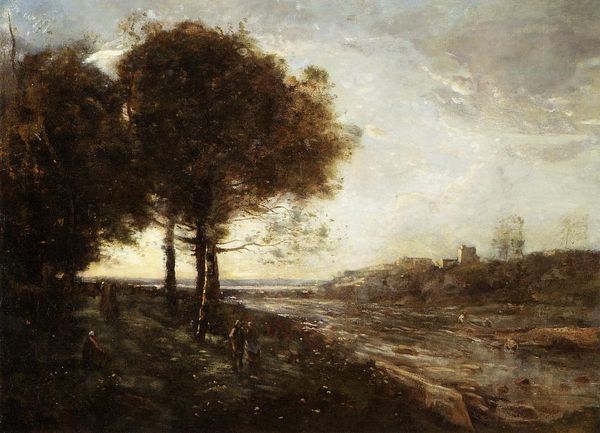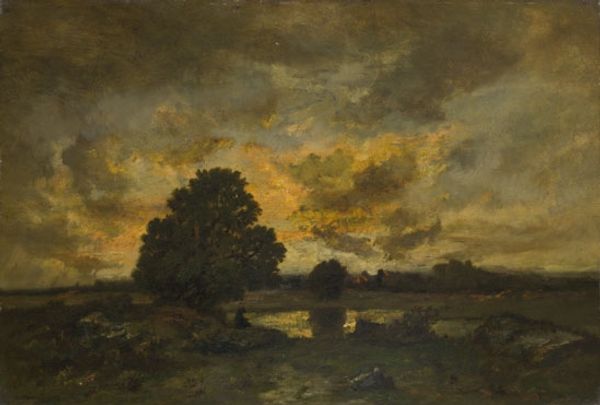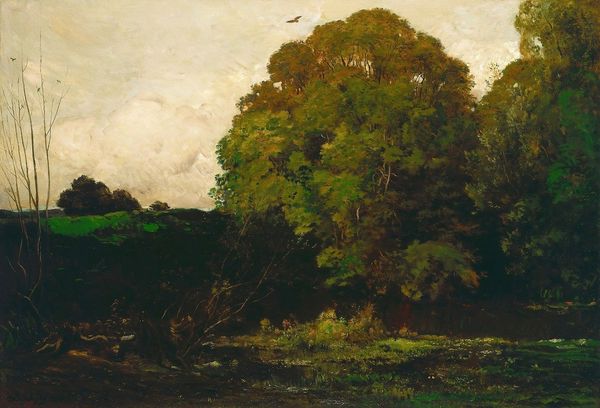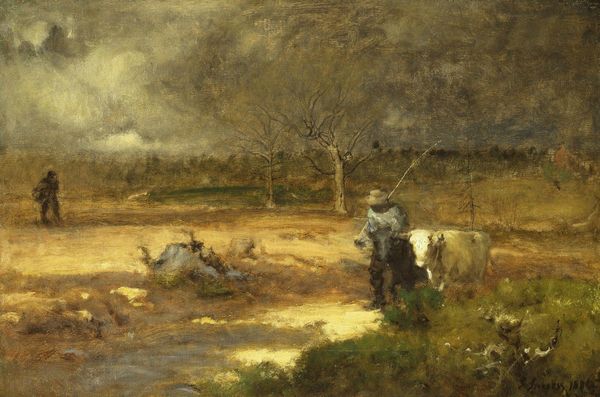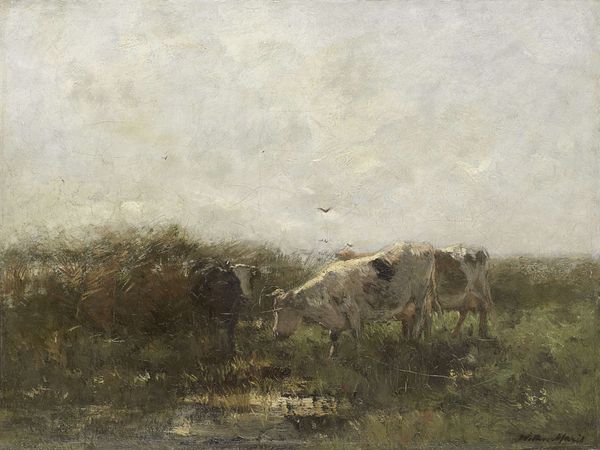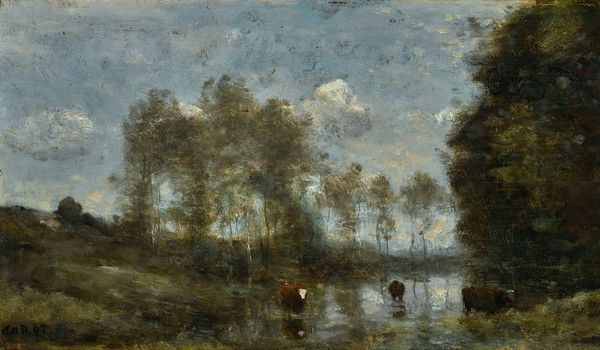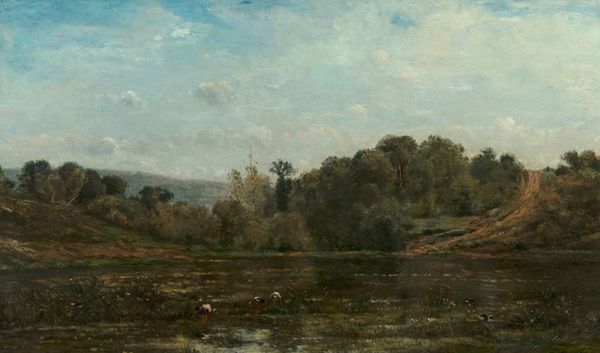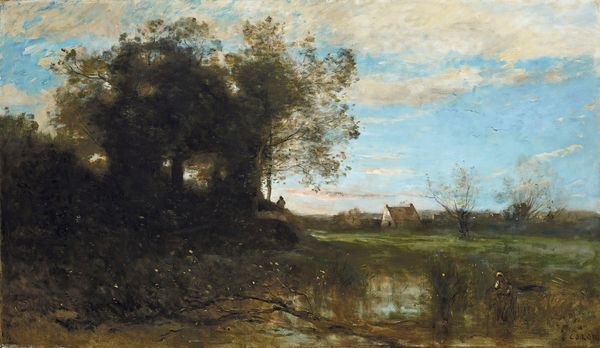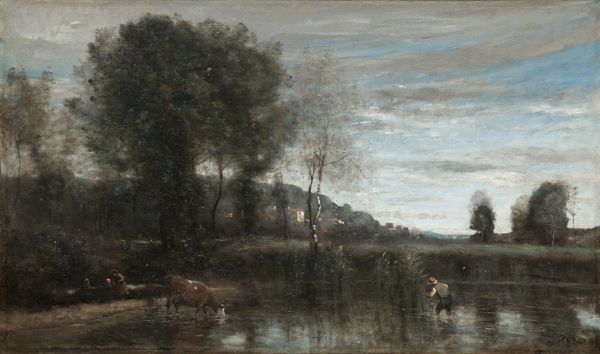
painting, oil-paint
#
painting
#
oil-paint
#
landscape
#
realism
Copyright: Public Domain: Artvee
Curator: This painting, rendered in oil paint, is entitled "Summer Twilight" by Edward Mitchell Bannister. Editor: There's such a somber, almost melancholic quality to it. The colors are muted, the scene is still... it feels heavy with unspoken emotion. Curator: Let’s consider the setting, those materials used. Bannister was a prominent African-American artist navigating a predominantly white art world. Did his experience inform his depictions of labor, land, and leisure? What's your take on that context and its possible resonance in the way this rural scene is represented? Editor: I see it immediately, though it might be interpreted differently. To me, this quiet scene is pregnant with symbolic weight. Twilight, as a transitional state, speaks to the liminal spaces Black Americans occupied in the late 19th century. The land itself becomes a stage for their unfolding story. Even those cows reflected in the water have something primal and powerful about them, like emblems of enduring life. Curator: I wonder, too, about Bannister's technique. He trained conventionally, studying European landscape painting, but the expressive brushwork and tonalism here suggests a personal approach to representing nature's cycles. Could the thick application of oil-paint be a reference to more 'rustic' artistic practices outside the academy? Editor: Definitely! The texture invites the viewer to experience this moment deeply. Beyond the visual, there are tactile memories at play. Notice, though, the lack of human figures. Their absence heightens the significance of the natural world; it becomes this stand-in for something spiritual or elemental. In fact, what if the water element and that reflective moment references collective memory? The water could mean looking backward towards shared memories. Curator: Thinking about Bannister's choice of subject—the cows by the water, the lush vegetation, it aligns with his broader engagement in depicting labor related to the natural environment, the raw elements with the resources they provided. We see those means reflected, not as idyllic escapism, but also as tangible. Editor: I like the notion of this natural scene providing tangible insight, but let us not miss its connection to our subconsciousness as the world transitions from one state to another; twilight does provide food for thought. Curator: Food, perhaps a rich and fertile topic for contemplation after this discussion. Editor: Indeed. Bannister's work holds layers to consider on any occasion.
Comments
No comments
Be the first to comment and join the conversation on the ultimate creative platform.
